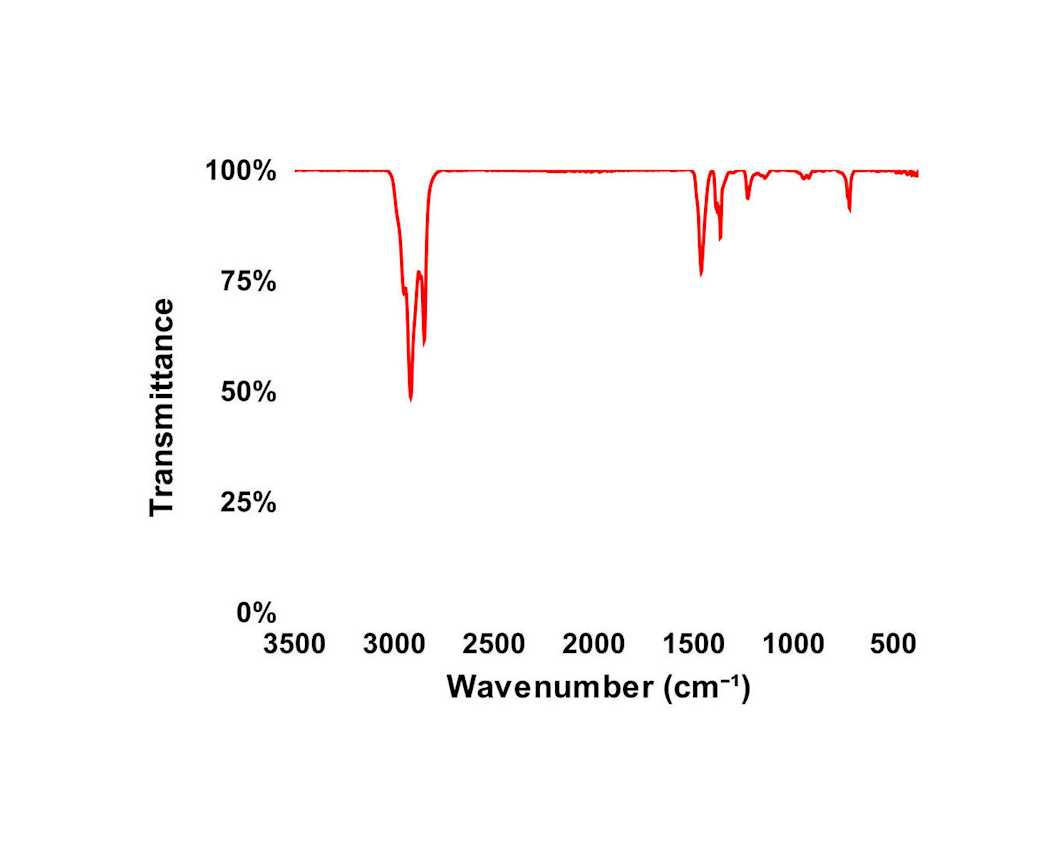FTIR spectroscopy
Fourier transform infrared spectroscopy (FTIR) is an analytical technique used to identify the functional groups of a molecule. FTIR analysis is suitable for liquids, solids, and gases with covalent bonds.

Some of our FTIR services
Identification of chemical groups with FTIR (solid samples)
Microplastics in natural water or wastewater with µFTIR
Microplastics in clean water samples or bottles with µFTIR
Microplastics in blood and other samples of human origin
Microplastics on filter
Migration of microplastics from food contact materials & packaging
Microplastics in soil, sludge or sediment with µFTIR
Microplastics in biological samples of animal origin
Prices excluding VAT.
What is FTIR analysis used for?
FTIR is a versatile analytical tool for material characterization, capable of identifying chemical components in solid, aqueous, and gaseous matrices. Some popular applications of FTIR include the following:
Identifying microplastics in water, other environmental samples, and complex biological matrices (using FTIR microscopy). The results are expressed as particle counts by plastic type and size range.
Determining the chemical identity of polymers and detecting the presence of additives and contaminants.
Characterization of active pharmaceutical ingredients (APIs) and detection of organic impurities in the pharmaceutical industry.
Verification of raw material composition and ingredient authenticity in the food industry.
In-depth characterization of lignin and other biomass samples.
Molecular analysis of lubricants and hydraulic fluids by the ASTM E2412 standard method.
FTIR can also be coupled with a thermogravimetric analysis (TGA) to characterize the gases that are released when a sample is heated. This is known as evolved gas analysis (EGA).
What is the operating principle of FTIR?
During FTIR analysis, the material (solid, liquid, or gas) is subjected to an infrared light spectrum. When different molecules absorb IR light, molecular vibration occurs. Different molecules and bonds vibrate in a way characteristic to them, leading to different amounts of light being absorbed at specific wavelengths depending on the sample's composition.
The amount of IR light that passes through the sample is measured with a detector, and the data is converted to a spectrum-friendly form via a mathematical process called the Fourier transform. The final spectrum represents light intensity as a function of wavenumber.
Advantages of FTIR compared to traditional IR spectroscopy
FTIR allows precise and simultaneous spectral data collection with a wide spectral range, made possible by fixed and movable mirrors in the interferometer. The broad spectral range allows multiple frequencies of light to be directed at the sample at once, making FTIR more effective time-wise when compared to a traditional dispersive IR spectroscopy technique. FTIR also has a higher signal-to-noise ratio and high wavelength precision, making it more accurate than conventional IR spectroscopy.
Sample preparation
Often, FTIR measurement does not require any sample preparation, especially when using the ATR-FTIR setup. Tricky samples can be ground with IR-transparent potassium bromide (KBr) and pressed into a pellet form. Liquids can either be measured directly, or an IR-transparent solvent can be used to prepare a dilution. Gas samples are placed in a cylinder-shaped cell with IR-transparent windows.
Do you need FTIR analysis services?
Measurlabs offers laboratory testing with several FTIR setups, including FTIR microscopy, FTIR-TGA, and ATR-FTIR. Our logistics are optimized to handle large sample batches and routine analyses swiftly. In addition, we offer support for in-depth research projects, including access to any other analytical techniques your project might require. Contact us using the form below to start the discussion, and we'll prepare a customized quote to address all your testing needs.
Suitable sample matrices
- Liquid, solid and gaseous materials
- Organic materials, such as plastic, paper, cardboard, biomass and solvents
- Inorganic compounds that absorb IR light
Ideal uses of FTIR spectroscopy
- Identification of functional groups
- Identification of unknown materials
- Comparing the chemical composition of different chemicals and materials
Ask for an offer
Fill in the form, and we'll reply in one business day.
Have questions or need help? Email us at info@measurlabs.com or call our sales team.
Frequently asked questions
This technique is used to identify the functional groups present in the sample. FTIR is suitable for the identification of polymeric materials and for comparing the chemical composition of different chemicals and materials.
Metals do not absorb light in the IR range and are therefore not suitable for FTIR spectroscopy. Complex molecules and their mixtures cannot be reliably identified. FTIR also cannot detect diatomic or noble gases, such as N2 or He.
FTIR spectroscopy is suitable for solids, liquids and gases.
Measurlabs offers a variety of laboratory analyses for product developers and quality managers. We perform some of the analyses in our own lab, but mostly we outsource them to carefully selected partner laboratories. This way we can send each sample to the lab that is best suited for the purpose, and offer high-quality analyses with more than a thousand different methods to our clients.
When you contact us through our contact form or by email, one of our specialists will take ownership of your case and answer your query. You get an offer with all the necessary details about the analysis, and can send your samples to the indicated address. We will then take care of sending your samples to the correct laboratories and write a clear report on the results for you.
Samples are usually delivered to our laboratory via courier. Contact us for further details before sending samples.